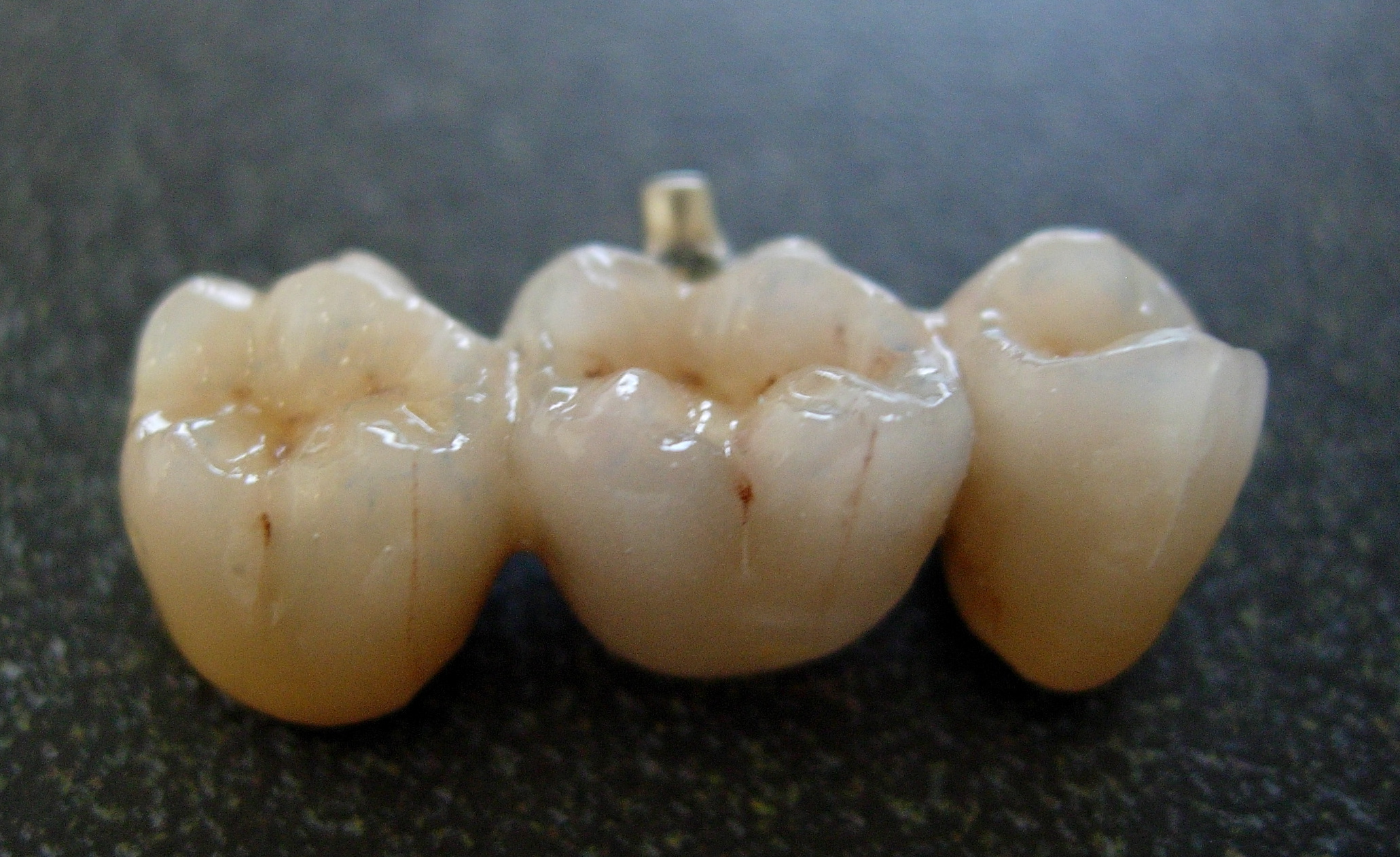As well as you might care for your teeth on a daily basis, there may be times when some dental work is necessary.
In the majority of cases, a hole or cavity may be filled by a standard filling but there are other cases where more serious and long term work may be required. Dental bridges and crowns are one alternative to root canal work or the removal of the damaged tooth altogether.
Having a crown should never be undertaken lightly. It is a lengthy procedure and is more expensive than standard work. However, with the right care and attention after the crown is fitted, there is no reason why it shouldn’t stay as a permanent option with little or no more work required.
| crown |
 |
| Bridge |
#1. Immediately after
The most important thing to note about having a crown is that you’ll require an anaesthetic. Many people find the sensation of a numb mouth to be extremely odd and as a result may pick at their lips, overbite and make their gums sore or even bite their tongue or the inside of their mouth. You should always be careful as your mouth is under anaesthetic that you don’t cause any damage.
As the numb feeling wears off, you may experience some discomfort, especially as you’ve had a considerable amount of work done. Your dentist may prescribe you with some strong painkillers if they feel it necessary. Alternatively an over the counter medication such as paracetamol, ibuprofen or co-codamol may help ease any pain you’re in. It may be that the site of the work is sore for a few days following the procedure, in which case you might require a numbing agent such as one you might use on a mouth ulcer.
You may also notice that your mouth has suddenly become extremely sensitive to hot and cold substances such as tea or cold ice lollies. This is perfectly normal after dental work but should it persist, you may need to ask for a further examination.
#2. Hygiene
The worst thing that can happen to your newly fitted crown is for the teeth around it to become infected and weakened. Therefore if you don’t have a hygiene routine such as flossing and the use of mouthwash, now is the time to begin one in addition to your daily brushing.
#3. Instructions
Depending on the site of your crown, and the amount of work which has been done on the area, your dentist may give you specific care instructions. These could include lists of foods to avoid or some care for you afterwards. This information has been put together specifically for you and it is vital that you follow it to ensure the ongoing health of your crown.
There are definitely numerous particulars like that to take into consideration. That could be a great level to carry up. I supply the ideas above as general inspiration but clearly there are questions like the one you bring up the place a very powerful thing will be working in honest good faith. I don?t know if best practices have emerged round things like that, however I'm positive that your job is clearly recognized as a good game. Both boys and girls feel the influence of just a moment’s pleasure, for the remainder of their lives. casino blackjack
ReplyDelete